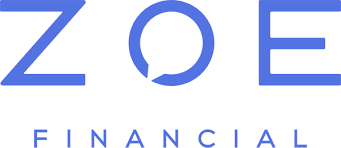What Is a Good Monthly Retirement Income?

Many or all of the products featured here are from our partners who compensate us. This influences which products we write about and where and how the product appears on a page. However, this does not influence our evaluations. Our opinions are our own. Here is a list of our partners and here's how we make money.
The investing information provided on this page is for educational purposes only. NerdWallet, Inc. does not offer advisory or brokerage services, nor does it recommend or advise investors to buy or sell particular stocks, securities or other investments.
A good monthly retirement income is typically 80% of pre-retirement income; advisors often suggest a range between 70% and a more conservative 90%. Median income for households headed by someone over 65 was $50,290, or $4,191 per month, in 2022 according to the U.S. Census Bureau.
Many people are likely eager to maximize their monthly retirement income. According to the U.S. Bureau of Labor Statistics, in 2021 consumers 65 and over spent an average of $57,818 annually, or $4,818 per month, which was more than the median income for 65-and-up households.
Here are some popular sources of good monthly retirement income and ways to increase that income.

Get a custom financial plan and unlimited access to a Certified Financial Planner™
NerdWallet Advisory LLC
4 common sources of monthly retirement income
1. Social Security
Social Security retirement benefits are typically available to people starting at age 62 if they’ve earned enough work credits (which you earn each year by working and earning income). However, it can pay to wait. The maximum Social Security benefit at full retirement age is $3,822 per month in 2024. Your full retirement age depends on when you were born.
2. Retirement plans
Some employers may offer plans such as 401(k)s or 403(b)s, into which you can make deposits directly from your paycheck. These plans have tax-advantaged benefits that can give account balances a boost.
In general, you can begin withdrawing from a 401(k) at age 59 1/2, and you're required to start taking withdrawals when you reach age 72 (or 73 if you reach age 72 after Dec. 31, 2022).
3. Savings
This includes financial instruments such as certificates of deposit, stocks, bonds, individual retirement accounts and other sources.
Certificates of deposit, or CDs, are savings accounts for dedicated sums of money for a fixed period of months or years. There are different types of CDs, such as standard, high-yield jumbo and more.
Stocks are financial instruments that represent ownership in a public company. You can buy and sell specific stocks yourself, or you can invest in mutual funds or exchange-traded funds, which are baskets of different types of stocks.
Bonds are loans to companies or governments. They are fixed-income instruments, meaning they pay interest at regular, predictable rates and intervals. That can make them attractive to retirees. You can buy and sell specific bonds yourself, or you can invest in bond mutual funds or ETFs, which are baskets of different bonds.
An IRA account is a tax-deferred investment account. Depending on which type of IRA you choose (Roth or traditional), your contributions may be tax-deductible or withdrawals may be tax-free. Here are the key differences between Roth and traditional IRAs.
Roth IRA | Traditional IRA |
|---|---|
Key differences | |
|
|
Contribution limit | |
$7,000 in 2024 ($8,000 if age 50 or older). | |
Early withdrawal rules | |
Roth IRAs allow contributions to be withdrawn at any time, but earnings distributed before age 59 1/2 may be subject to a 10% penalty and income taxes. There is also a five-year holding rule for Roth IRA investment earnings. | Unless you meet an exception, distributions from a traditional IRA before age 59 1/2 are subject to taxes and a 10% penalty. This applies to both contributions and investment earnings. |
Other sources might include inheritance, investment property, savings accounts or even health savings accounts.
4. Pensions
Although less common these days, employers such as the military and the federal government may offer pension plans. Pensions are usually defined benefit plans, where the amount you receive in retirement depends on years worked and earnings over time.
In general, monthly retirement income from a pension can’t exceed either 100% of your average compensation for your highest three consecutive calendar years, or $275,000 (the 2024 threshold), whichever is less. The payments are subject to cost-of-living adjustments.
» Learn more: How much should you save for retirement?

Fees Varies by Advisor (free initial consultation) | Fees 0% management fee | Fees $0.005 per share; as low as $0.0005 with volume discounts |
Account minimum $150,000 | Account minimum $0 | Account minimum $0 |
Promotion 3-Month Satisfaction Guarantee | Promotion None no promotion available at this time | Promotion Exclusive! US resident opens a new IBKR Pro individual or joint account receives 0.25% rate reduction on margin loans. Tiers apply. |
AD Paid non-client promotion | AD Paid non-client promotion |
Ways to increase your monthly retirement income
Employer matching
If you’re still working, be sure to take a look at the retirement plans your employer offers. Some employers match the deposits you make to a 401(k) plan.
To maximize the amount of free money you can get from that arrangement, fund your 401(k) at least up to the amount required to capture matching contributions, which is typically between 3% and 6% of your annual salary.
Employer matching arrangements vary but frequently range from 50% to 100% of your contributions, up to that limit.
If you’re under age 50, your maximum allowed 401(k) contribution is $22,500 in 2023 and $23,000 in 2024; if you’re 50 or older, the max is $30,000 in 2023 and $30,500 in 2024.
Downsizing
Purchasing a home is an investment and can be valuable during retirement, especially if home prices have risen since you bought the property. The value of your house minus how much you owe on it is called equity. Selling your home and moving to a more affordable place can free up some of that equity for retirement.
Even better, up to $250,000 of capital gains for single filers ($500,000 for joint filers) are typically not subject to federal capital gains tax when selling your primary home.
Reverse mortgage
A reverse mortgage is a loan against the equity in your home. You receive a lump sum, a series of payments or a line of credit, and you repay the loan when you sell or move out of the home.
You need to be at least 62 and on a fixed income to qualify for this option. You’ll also need to have a low mortgage balance or own the home outright.
Payments from a reverse mortgage typically aren't subject to federal income tax. However, for every dollar you receive from a reverse mortgage, the balance on the loan grows.
» Learn more: Guide to early retirement: How to retire early
Fees Varies by Advisor (free initial consultation) | Fees 0% management fee | Fees $0.005 per share; as low as $0.0005 with volume discounts |
Account minimum $150,000 | Account minimum $0 | Account minimum $0 |
Promotion 3-Month Satisfaction Guarantee | Promotion None no promotion available at this time | Promotion Exclusive! US resident opens a new IBKR Pro individual or joint account receives 0.25% rate reduction on margin loans. Tiers apply. |
AD Paid non-client promotion | AD Paid non-client promotion |








